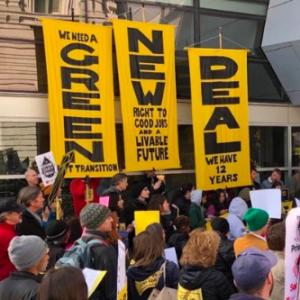Fallout from the COVID-19 pandemic has reached unthinkable proportions with many thousands dead and millions facing unemployment.
In response, Congress and the Trump administration have ramped up government spending while the Federal Reserve has provided sufficient liquidity to keep the economy from collapsing.
To the surprise of few, the administration’s actions have drawn the ire of some lawmakers and others hoping to exploit the pandemic as a springboard for a revived “Green New Deal.” In particular, climate activists are using the pandemic as justification for rolling back regulatory changes the Environmental Protection Agency has been working on for years.
A number of senators want to roll back recent changes to car and truck mileage standards and allowable mercury emissions from power plants, and they also want to waive enforcement of certain mandates for voluntary compliance.
EPA Administrator Andrew Wheeler has commented that these changes were adopted in response to regulatory overreach by the Obama administration and now offer “an honest accounting method” that balances cost with safety.
The pandemic notwithstanding, growing political vitriol has been targeted at the EPA. For instance, Senate Environment and Public Works Committee member Tom Carper of Delaware has stated, “While the rest of the country works around the clock to combat and overcome this deadly respiratory pandemic, the Trump EPA has been spearheading a pandemic of pollution.”
Sen. Ed Markey of Massachusetts recently declared, “You have turned EPA into Every Polluters’ Ally. Shame on you. Your decisions make this pandemic worse.” Markey, of course, is one of the original authors of the Green New Deal while Carper has introduced companion legislation called the “Clean Economy Act.”
This is not the time to be beating up on fossil fuels. Climate activists, whether in Congress or environmental organizations, should, if anything, be applauding the efforts of fossil fuel companies to battle the pandemic. In an editorial several weeks ago, The Wall Street Journal echoed this sentiment by pointing out the role many industry members are playing in personal protective equipment production and community relief efforts.
At its plant in Baton Rouge, Louisiana, ExxonMobil is producing the equivalent of 50 million small bottles of sanitizer per month and is now the world’s leading isopropyl alcohol manufacturer. The company is also working with Boeing to increase output of polypropylene that is used to make masks and medical gowns.
Other energy companies, like ConocoPhillips, Cabot
At this time of a national emergency, we’re forgetting that the United States has done more than any other country to address climate change. International Energy Agency data show that the United States once again led the world in reducing energy-related carbon-dioxide emissions in 2019, largely due to greater adoption of natural gas in power generation.
Coal-to-natural-gas switching has led to almost one gigaton of carbon emissions reductions since 2000. The United States also leads in carbon capture sequestration technology, with about 80 percent of the world’s capacity.
What’s more, from 1990 to 2017, domestic methane emissions from natural gas systems dropped 14 percent while production increased more than 50 percent. This reduction did not come about as a result of government mandates but rather from innovation by private companies.
We should also remember that fossil fuels, particularly natural gas, are essential as backup power sources to intermittent wind and solar energy to ensure electric grid reliability.
Attacks on the EPA and its rule making are nothing more than a stalking horse for pushing various climate agendas. In fact, the pandemic and pollution have nothing to do with each other.

